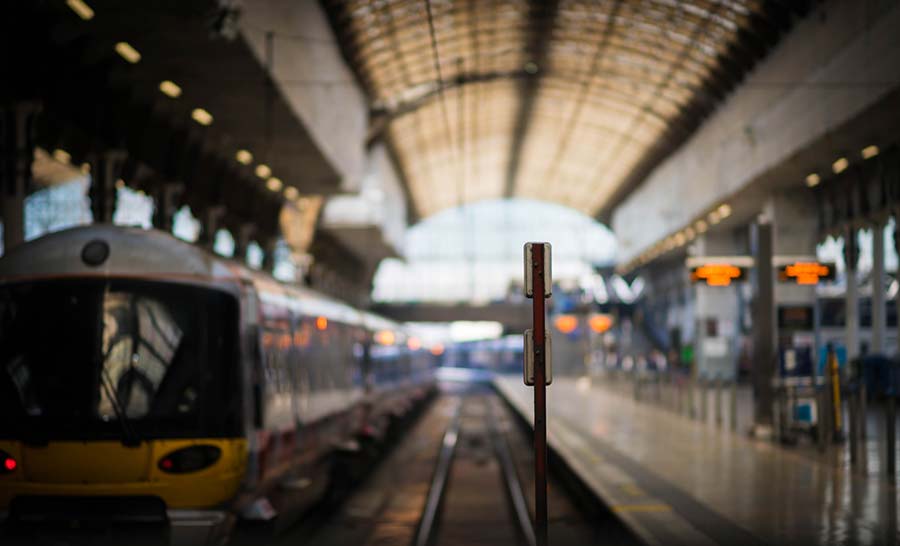15
March 2016
Budget 2016: Osborne to Fund New Transport Routes
It has been revealed by the Treasury that Chancellor George Osborne will, in his next budget announcement on Wednesday, announce plans to fund a new rail route across the capital as well as a high speed line linking Manchester and Leeds and a trans-Pennine tunnel.
Bold Decisions and Big Investments
Fresh off the back of news that he will have to make £4bn in cuts in order to plug a gap in the country’s economy, Osborne will announce plans to implement two new “transformative” rail routes in London and the North, as well as funding for motorways in the North-West as part of his ‘Northern Powerhouse Initiative’. Total initial funding for the planning of the new rail and road routes around the North is expected to total around £300 million.
“With the difficulties we see in the global economy” he said, “we have got to make Britain fit for the future. Now is the time to make the bold decisions and the big investments that will help us to lead the world in infrastructure and create jobs, push up living standards and boost our productivity for the next generation. That’s what my budget this week sets out to do.”
Crossrail 2
The first of these routes, the new Crossrail 2, will be a high speed underground line, linking the north and south of London. With an estimated cost of £27 billion, Crossrail 2 will cost almost twice the amount of its predecessor which, when it opens in 2018, will be renamed the Elizabeth Line, in honour of our longest serving monarch.
Crossrail 2 is expected to help create some 200,000 new jobs and will connect Surrey and Hertfordshire though tunnels under the capital.
Osborne will put forward £80 million (with the expectation that Transport for London will do the same) in order to develop plans for Crossrail 2. The hope is that the necessary legislation will be in place by 2020 and that the route itself will then be completed by 2033, though these dates are far from set in stone.
HS3
The next, the High Speed 3 rail route, will link Manchester and Leeds through the Pennines and will have trains travelling at 140mph, cutting down journey times between the two Northern cities by around a third, with the aim of it ultimately dropping down to 30 minutes.
Both of the transport links will be part of a general bid to improve infrastructure in the country and come following recommendations from the National Infrastructure Committee. The NIC is led by Lord Adonis, a former Labour peer, who praised the HS3 plans as an essential part of the plan to bring up the north of the country, turning it into a true “powerhouse”.
He said: “If the North is to become a powerhouse, it has to be better connected. Leeds and Manchester are just 40 miles apart but there is no quick and easy way to travel between the two. In rush hour, it can take more than two hours by car; by train it can almost be an hour.”
He went on: “A better connected North will be better for jobs, better for families and better for Britain, the work should begin as quickly as possible.”
The exact route for HS3 is yet to be decided, but the high speed link between Manchester and Leeds it likely to form part of a longer route between Liverpool and Hull, linking the north-east of the country to the north-west. Osborne will put forward £60 million to help fund final plans for HS3.
There is also talk of a trans-Pennine rail tunnel linking Manchester and Sheffield, plans for which will be elaborated by Osborne on Wednesday.
The HS3 plans are not expected to generate quite the same level of controversy that the expensive and, by some accounts, dangerous HS2 route linking London and Manchester. The HS2 route, expected to be finished around 2033, has an estimated total cost of between £45 billion and £80 billion (according to figures from the Department for Transport and the Institute of Economic Affairs respectively).
Northern Powerhouse
Further improving the transport infrastructure in the North will involve plans to invest in motorways around the North-West as well as through the Pennines. The trans-Pennine tunnel would be, if created, the longest road tunnel in Europe, and would sharply reduce journey times between Manchester and Sheffield.
This would complete Osborne’s ‘Northern Powerhouse Initiative’, although questions have been raised regarding how far the proposed £300 million investment will actually go, given the staggering costs of the various constituent parts of the plans. Costs for HS3 alone are estimated to be between £6 and £15 billion, depending on the exact route and scale of the project.
The Treasury has also been somewhat unclear as to exactly where the £300 million will go; while official statements suggest that initial funding will be going just towards planning costs, some sources cited by the Guardian are claiming that it would go directly towards “kickstart[ing] the work”.
Further infrastructure-based changes likely to be announced in the Budget include the pledging of £1.2 billion towards to building of more starter homes on various brownfield sites across the country, in a bid to make good on the government’s promise to build 200,000 affordable housing units by the end of the current parliament.
Changes to income tax are also likely, with the personal allowance increasing as well as the income bracket for the 40% tax rate.





